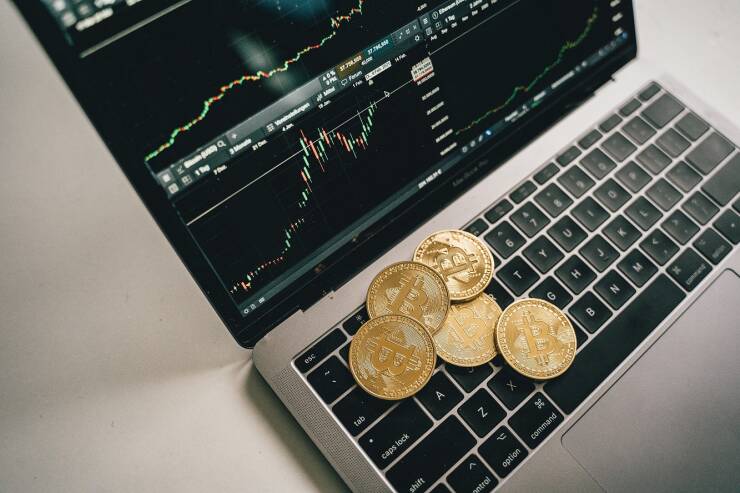
In recent years, the financial landscape has witnessed a significant shift, driven by the rise of decentralized currency. This revolutionary concept is at the heart of the broader movement known as decentralized finance (DeFi). As traditional financial systems grapple with the challenges of transparency, accessibility, and control, decentralized currency offers a promising alternative. In this blog post, we’ll explore the role of decentralized currency in the evolution of decentralized finance and how it is reshaping the future of financial services.
The Emergence of Decentralized Finance
Understanding Decentralized Finance
Decentralized finance, commonly referred to as DeFi, is a financial system that operates independently of traditional centralized institutions such as banks, brokerages, and exchanges. Instead, DeFi relies on distributed ledger technology (DLT) and smart contracts to facilitate financial transactions. This innovative approach to finance aims to provide more open, transparent, and accessible financial services to individuals worldwide.
At the core of DeFi is the concept of decentralization, which means that financial operations are not controlled by a single central authority. Instead, power is distributed among a network of participants, each of whom has a say in how the system operates. This shift away from centralized control is one of the key factors driving the rapid growth of DeFi.Go to Immediate Spike and make an account there.
The Role of Decentralized Currency
Decentralized currency is a crucial component of the DeFi ecosystem. It serves as the medium of exchange within decentralized financial platforms, enabling users to engage in transactions without relying on traditional banks or financial intermediaries. Unlike conventional currencies issued by central banks, decentralized currency operates on blockchain technology, which ensures that transactions are transparent, secure, and immutable.
How Decentralized Currency Powers DeFi Applications
Enabling Peer-to-Peer Transactions
One of the most significant ways in which decentralized currency powers DeFi is by enabling peer-to-peer (P2P) transactions. Traditional financial systems rely heavily on intermediaries to facilitate transactions, whether it's transferring money between accounts or trading assets. These intermediaries not only add complexity and cost to the process but also introduce points of failure and risk.
Facilitating Decentralized Lending and Borrowing
Another area where decentralized currency plays a pivotal role is in decentralized lending and borrowing platforms. In traditional finance, obtaining a loan typically requires going through a bank or other financial institution, which often involves a lengthy approval process, credit checks, and collateral requirements.
Powering Decentralized Exchanges
Decentralized exchanges (DEXs) are another critical component of the DeFi landscape, and decentralized currency is at the heart of their operations. Unlike centralized exchanges, which require users to deposit their assets with a third party, DEXs allow users to trade assets directly from their wallets. This approach minimizes the risk of hacking and theft, as users retain control over their assets throughout the trading process.
The Benefits of Decentralized Currency in DeFi
Increased Financial Inclusion
One of the most significant benefits of decentralized currency within the DeFi ecosystem is increased financial inclusion. Traditional financial systems often exclude individuals who lack access to banking services, whether due to geographic location, income level, or other factors. Decentralized currency, however, can be accessed by anyone with an internet connection, allowing people from all walks of life to participate in the global economy.
Enhanced Transparency and Security
Transparency and security are two of the most critical factors in any financial system, and decentralized currency excels in both areas. Because transactions are recorded on a public ledger (the blockchain), they are visible to all participants in the network. This transparency helps to prevent fraud and ensures that all transactions are conducted fairly.
Reduced Costs and Improved Efficiency
Decentralized currency also offers the advantage of reduced costs and improved efficiency in financial transactions. Traditional financial systems are often burdened by high fees and lengthy processing times, particularly when it comes to cross-border transactions. Decentralized currency, on the other hand, allows for near-instantaneous transactions at a fraction of the cost.
The Future of Decentralized Currency and DeFi
As decentralized finance continues to evolve, the role of decentralized currency is likely to become even more significant. With ongoing advancements in blockchain technology and the development of new DeFi applications, decentralized currency is poised to play a central role in the future of finance.
One area of potential growth is the integration of decentralized currency with other emerging technologies, such as artificial intelligence and the Internet of Things. By combining these technologies, it may be possible to create even more innovative and efficient financial solutions, further expanding the reach and impact of DeFi.
Conclusion
In conclusion, decentralized currency is playing a transformative role in the evolution of decentralized finance. By enabling peer-to-peer transactions, facilitating decentralized lending and borrowing, and powering decentralized exchanges, it is helping to create a more open, transparent, and inclusive financial system. As the DeFi ecosystem continues to grow, decentralized currency will undoubtedly remain at the forefront, driving innovation and reshaping the future of finance. The potential for increased financial inclusion, enhanced security, and reduced costs makes decentralized currency a cornerstone of the next generation of financial services.